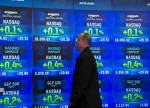
- All Instrument Types
- Indices
- Equities
- ETFs
- Funds
- Commodities
- Currencies
- Crypto
- Bonds
- Certificates
Please try another search

The Role Of Trading Psychology
“The minute you get away from the fundamentals – whether it’s proper technique, work ethic, or mental preparation – the bottom can fall out of your game.”
-Michael Jordan
It is easy to believe that investing just depends on being at the right place at the right time to effectively capitalize on opportunities, but there are many other factors that contribute to investing success. One of the most essential areas that often go overlooked by many investors is psychology. Throughout each day, we experience a range of emotions ranging from happy to sad to angry and more. However, success in trading often depends on removing the emotional component from our decision-making.
The Emotionless Market
Before diving into why managing your own emotions is so important, it’s relevant to understand why the market doesn’t have any emotions. Win or lose, the market doesn’t care about your feelings. Sentiment, or how market participants feel towards a particular asset or general market conditions, is a driver of prices and market momentum, but the market itself is an inanimate object that just represents the meeting point of market participants.
While its common to feel like the market is against you after suffering a loss or the market respects your ideas and decision-making after a win, these acknowledgments could not be further from the truth. The market only rewards those individuals that respect its nature, which is unpredictable at very best. The reason why it is so important to plan for all the possible outcomes and determine risk-reward is so that you can effectively react to different situations and scenarios without being impacted by the psychological ups and downs of trading.
Maintaining Neutrality in the Face of Disaster
Just like the neutral gear in a car means staying put, not moving forward or backward, a neutral emotional attitude towards investing is essential for maintaining your decision-making objectivity and not embracing extreme reactions.
When it comes to investing, the two emotions we are most susceptible to encounter involve greed and fear. Each of these emotional reactions can create chaos for investing strategies and impact future behavior, leading to unforced errors.
Take for example a winning trade. Instead of taking profits at the level that was defined by the initial exit strategy that was formed before the trade was opened, sometimes, traders will ignore the strategy, letting greed overwhelm the decision-making process. Letting trades run a little further to capture extra profit can result in turning a winning trade into a losing trade, going against one of the most important principles in investing: you cannot get hurt taking profits. Turning a winning trade into a losing trade is more than simply a loss of trading capital; it can also lead to undisciplined behavior in the future.
On the other hand, many traders have faced losing scenarios before, letting trades run past the defined exit point and deepening the loss. This often inspires hoping, wishing, and praying that prices will reverse course, helping to turn a losing trade into a winning trade. The most important consideration to remember here is that the market doesn’t care about your feelings. We always want to return to trade another day, and not sticking with our game plan or observing limits can negatively impact our trading performance in the future. Maintaining an emotionless attitude helps promote discipline, keeping your trading decisions within the boundaries.
If you find it difficult to manage your feelings while trading, sometimes it can be helpful to let someone else do the heavy lifting. With FXTM Invest, users with ECN and ECN Zero accounts can copy successful strategy managers, helping remove the emotional decision-making component from the equation.
Overcoming the Emotional Rollercoaster
Winning and losing trades can send your emotions on an unstoppable rollercoaster ride. Winning trades may give you the sense that your decision-making is flawless and justify poor decision-making in future trades. Similarly, losing trades can give you the impression that you “need to make money back” from a market that owes you nothing. Closing a trade may be emotional, but it’s important to return to a stable psychology before entering a new trade.
A neutral approach to evaluating a trade opportunity, setting limits, and eventually executing an entry and exit strategy are paramount for potential long-term trading success. When we let emotions run our strategies, it becomes emotionally harder to let go of losing trades or realize winning trades. When you feel like you’re getting carried away because of emotions, the best thing to do is reset, either by halting trading or walking away from the terminal.
Emotions make it hard for us to be objective. That is why having a game plan can play such a strong role in managing our psychology and feelings when we trade. With an unclouded focus and clear perspective, proper preparation, and a neutral emotional state, we can ensure that the risk-reward conditions of a trade work in our favor, regardless of the trade outcome.
FXTM is an international online forex broker offering financial services in forex, CFDs on spot metals and CFDs on Commodity Futures, Indices and Shares.
The FXTM brand is authorized and regulated in various jurisdictions. ForexTime Limited (www.forextime.com/eu) is regulated by the Cyprus Securities and Exchange Commission with CIF license number 185/12, licensed by the Financial Sector Conduct Authority (FSCA) of South Africa, with FSP No. 46614. The company is also registered with the Financial Conduct Authority of the UK with number 600475. Exinity Limited (www.forextime.com) is regulated by the Financial Services Commission of the Republic of Mauritius with an Investment Dealer License bearing license number C113012295. Forextime UK Limited (www.forextime.com/uk) is authorised and regulated by the Financial Conduct Authority, firm reference number 777911.
CFDs are complex instruments and come with a high risk of losing money rapidly due to leverage. 90% of retail investor accounts lose money when trading CFDs with this provider. You should consider whether you understand how CFDs work and whether you can afford to take the high risk of losing your money.”
@2019 FXTM



